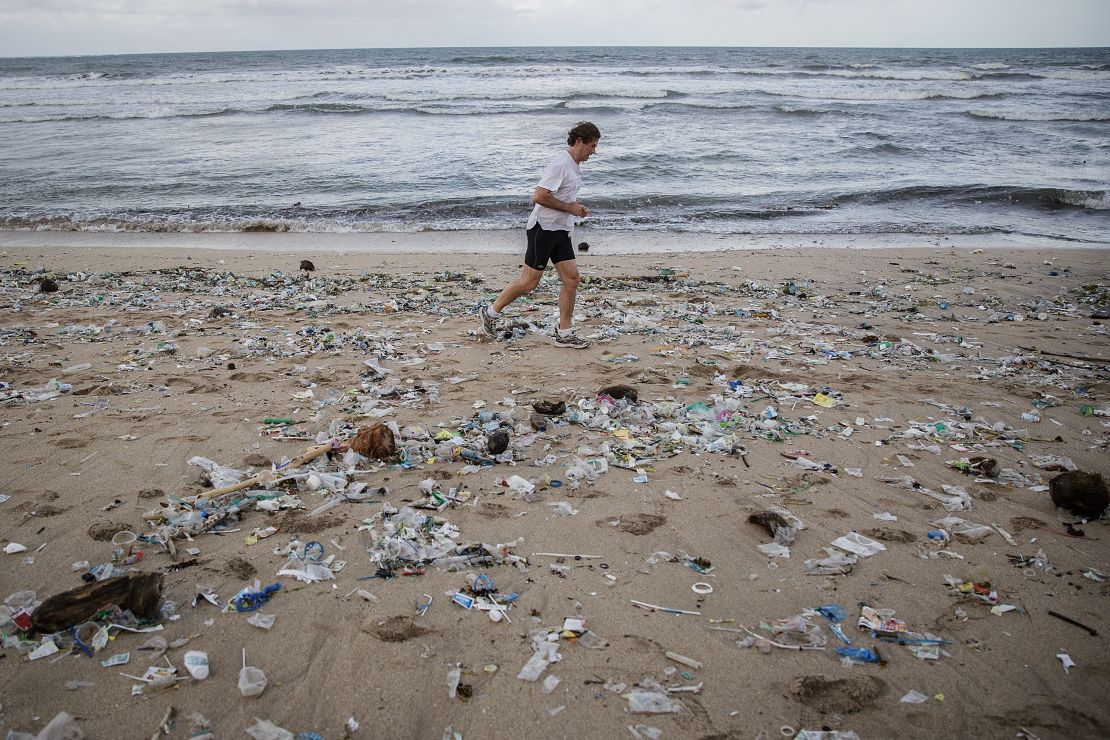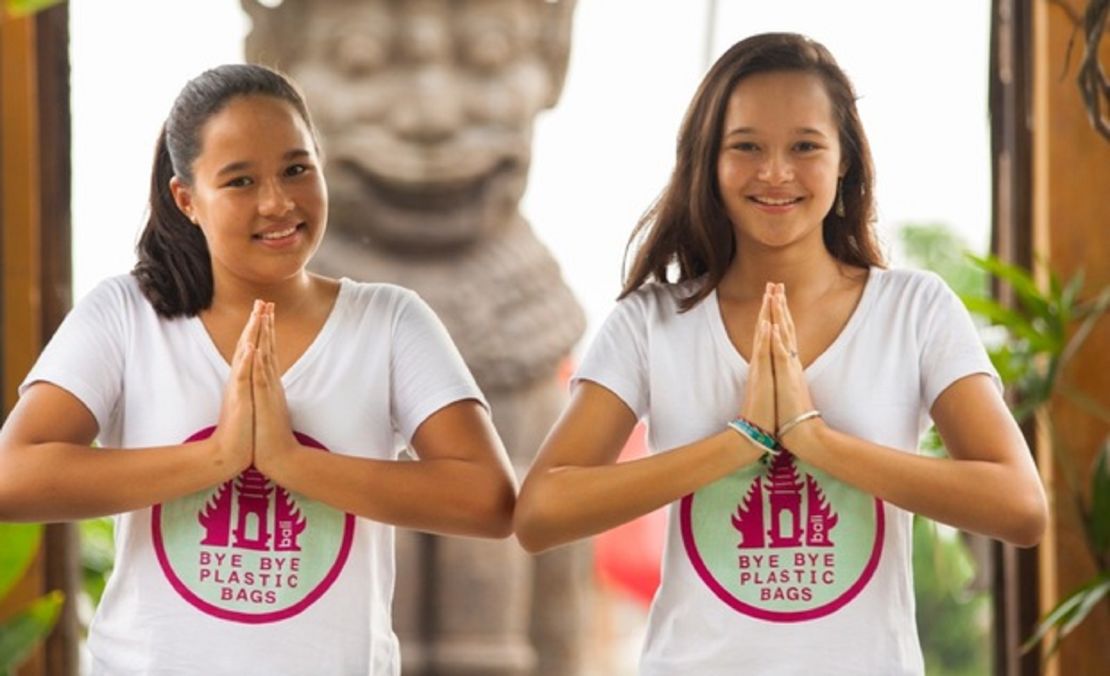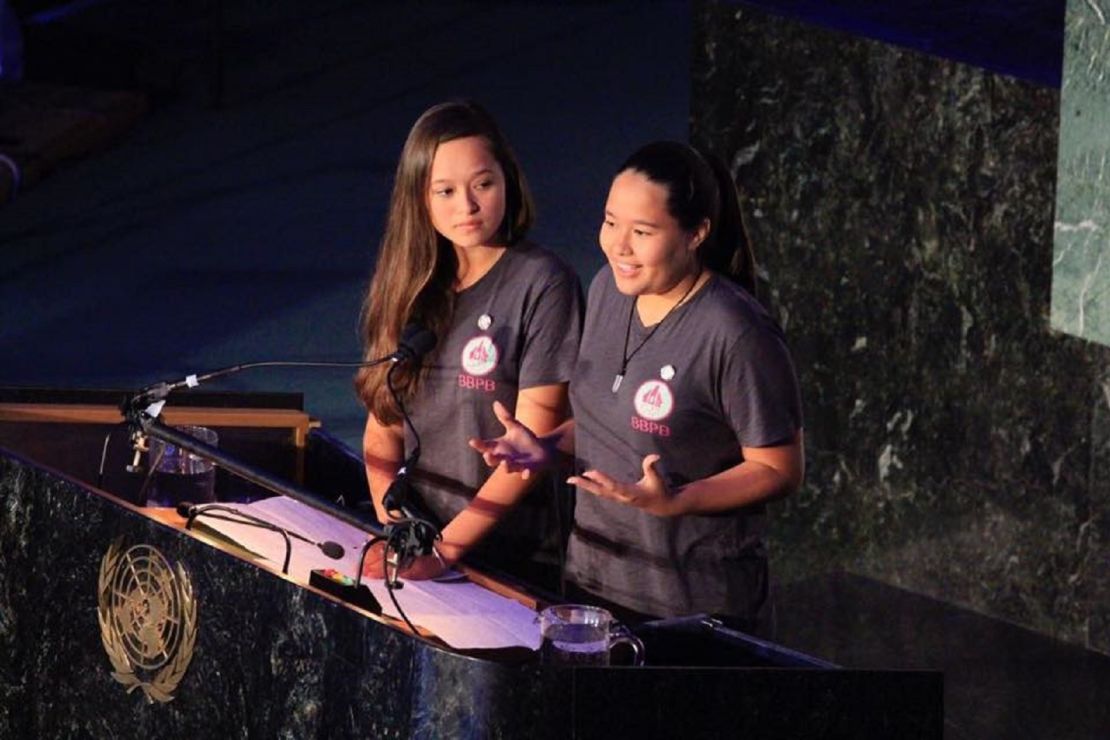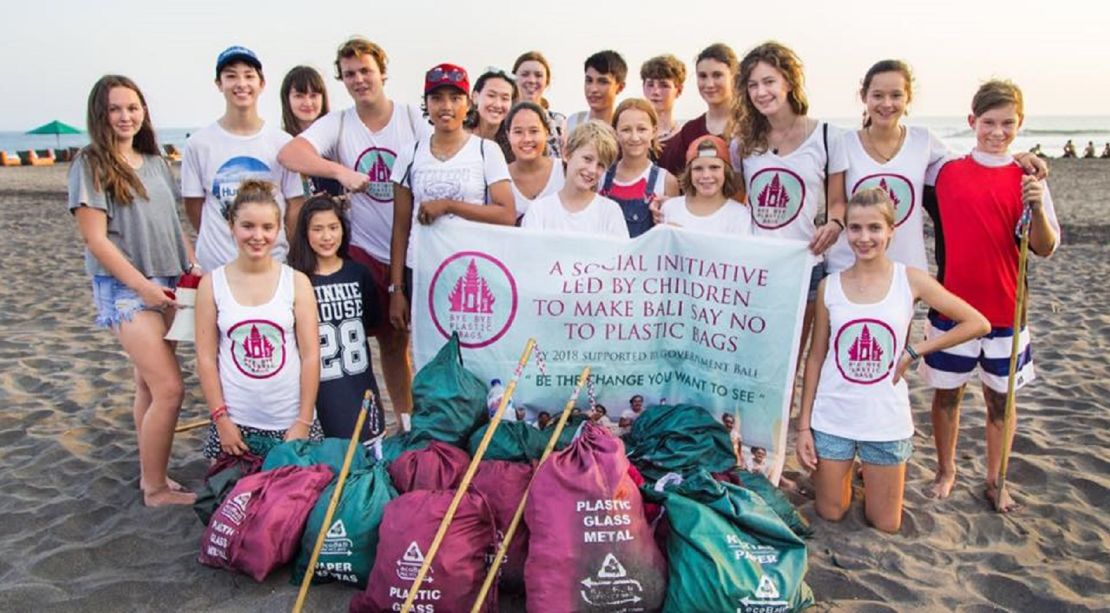Story highlights
Melati and Isabel Wijsen started campaigning against plastic bags in Bali when they were 10 and 12 years old.
They have since delivered a TED Talk and presented to the United Nations in New York.
“Welcome to Bali! Do you have any plastic bags to declare?”
If you’ve traveled to the lush Indonesian island of Bali recently, you might have received this peculiar greeting at the airport.
It would have come from Melati and Isabel Wijsen who have been campaigning for four years to get plastic bags banned from their island.
When they started out, they were just 10 and 12 years of age.
And now, they’re about to succeed.
Indonesia’s plastic problem
Indonesia is the second largest plastic polluter in the world after China – its plastic waste accounts for a whopping 10 per cent of marine plastic pollution.
The Indonesian government has pledged to invest $1 billion in reducing marine waste by 70 per cent by 2025, as part of the UN’s Clean Seas program.
The goal is ambitious, given the dire state of some of the country’s 17,000 islands, including Bali, which has a population of just over four million.
Due to the massive amounts of trash in the waters, when the wet season arrives and the winds turn, beaches on Bali are hit by the annual “trash season.”

The local government downplays the event, on one occasion calling it a “natural phenomenon,” but at its root are poor disposal systems and a lack of education on the problem of waste.
Start with the bags
Growing up on Bali, Melati and Isabel were surrounded by the negative impact of plastic.
“There’s no escaping it here,” Melati tells CNN. “The plastic problem is so in your face, and we thought: ‘Well, who’s going to do something about it?’”
A fateful day at school gave them the motivation they were looking for.
“We had a lesson in class about positive world leaders, change makers like Nelson Mandela, Martin Luther King, Lady Diana, and I remember at the ages of 10 and 12 we went home thinking about what we could do as kids from an island.

“We didn’t want to wait until we were older to stand up for what we believe in.”
So they didn’t. They founded, instead, an organization called Bye Bye Plastic Bags, an NGO driven by young people determined to get the population of Bali to say no to plastic bags.
100,000 signatures
That was the start of an incredible journey that has taken the sisters around the world, including to London where they delivered a TED talk and New York where they made an appearance at the United Nations.

In their TED talk, they sisters noted that only 5 per cent of plastic bags get recycled in Bali, but the island produces 680 cubic meters of plastic garbage a day – the equivalent of a 14-story building.
“Next to the many highs and successes,” says Melati, “there were definitely challenges. Particularly dealing with the government and lobbying to get them to move in the right direction.”
In their bid to get the local government to pay attention, they started a petition.
They obtained permission to start collecting signatures behind customs and immigrations at Bali’s airport and, eventually, got over 100,000.
Bali’s governor Mangku Pastika, however, remained unimpressed and for over a year-and-a-half failed to meet Melati and Isabel’s request for a hearing.
Frustrated, the sisters decided to start a hunger strike – a decision inspired by trip to India and a visit to Mahatma Ghandi’s house. Due to their young age, they performed the strike under the supervision of a dietician and only from sunrise to sunset.
It proved effective.
Twenty four hours later they were escorted by the police to the governor, who signed a memorandum of understanding to help the people of Bali say no to plastic bags by January 2018.
A global project
As that date approaches, the girls have been promoting on Bali the use of reusable bags and highlighting shops that have stopped selling plastic bags on their social channels

Along the way, they’ve had other successes, such as Bali’s largest ever beach cleanup, which attracted 12,000 volunteers.
“It was crazy to see so many people, no matter what age, nationality or occupation coming together for the same thing,” says Isabel.
They believe the voice of the youngest generations should have a larger resonance.
“If we could meet with world leaders and speak to them, we would tell them to listen more to the youth, consider us as more than just inspiration. We have bright innovative ideas of how to deal with some of the greatest issues of our time,” says Melati.
“We are the future, but we are here now, and we’re ready. We’ve learned kids can do things. We can make things happen.”

